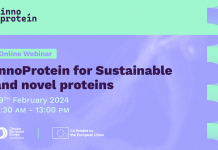Yiannis Faf, co-founder of WhatWeWant, discusses how you can have an eco-friendly Christmas by reducing festive waste and ensuring sustainable gift-giving
The environment is not always at the forefront of many consumers’ minds during the festive season. However, in recent years priorities have shifted. Now, consumers are actively trying to become greener and reduce their negative impact on the planet. As a nation, one of the biggest issues we need to tackle is the amount of waste produced through gift-giving.
This is an issue we’re particularly passionate about here at WhatWeWant. Having recently surveyed over 2,000 UK consumers, we found that over half (53%) of adults received unwanted presents in the last 12 months alone. If that wasn’t surprising enough, our research also revealed that one in five Brits have thrown away an ill-fated present without even using it.
This is indeed an eye-opening statistic, yet, it is somewhat contradictory to people’s inherent desire to reduce their environmental impact. So then, how can consumers reduce environmental guilt and have an eco-friendly Christmas?
Group gifts
When it comes down to it, Christmas presents are simply gestures of thoughtfulness – which don’t necessarily have to be relayed through physical items. To completely eliminate product waste, it might be worth exploring alternative options such as planning a family activity that everyone can participate in, or else offering to teach someone a new skill, whether this is guitar lessons or a new language.
Those with larger families or friendship groups could opt to do Secret Santa rather than buying a present for each individual. Not only will this cut down the number of products purchased, but there’s also the added element of mystery which builds up the excitement surrounding gift-giving.
Alternatively, crowdgifting is another promising option. For those unsure of the term, it is a phrase we coined here at WhatWeWant to describe groups of family and friends collaborating to purchase a larger, meaningful gift for someone close to them. After all, it makes more sense to collaborate and buy one present someone really wants, which might be beyond the remit of an individual’s budget, rather than each buying a small present which could go unwanted. By pulling their resources, a group has more financial flexibility to purchase a big-ticket item that will be more valued by the recipient.
Experience gifts
Consumers’ changing demands have led to the rise of a new phenomenon: experiential gifts. This offers people the opportunity to gift valuable and memorable experiences rather than products which might be discarded within months of receipt or left to gather dust.
The regularity of such practices was revealed in WhatWeWant’s recent research. Not only do one in five Brits admit to throwing away a present without using it, but almost half (43%) also have unopened or unused gifts sitting in their house. Besides signifying the needless damage it does to the buyers’ pocket, this statistic also highlights the environmental impact of unwanted gifts.
Instead, opting for an experience ranging from a restaurant tasting menu to a theatre ticket could vastly reduce the unnecessary waste produced. What’s more, such gifts open the doors to new experiences and serve to create memories that last a lifetime – much longer than the typical lifespan of a general Christmas present.
Importantly, this is not an exhaustive list of solutions. There is no shortage of ways to reduce your environmental impact this Christmas but following some of these steps should help to make your celebrations more sustainable this year!
Editor's Recommended Articles
-
Must Read >> How is fast fashion polluting our water?















